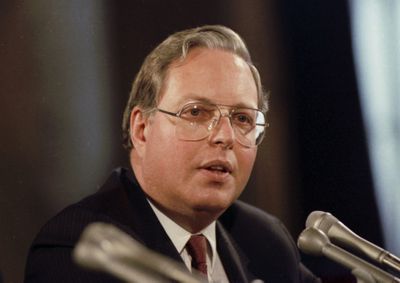Leader who coined ‘moral majority’ dies

Paul Weyrich, 66, the conservative thinker who coined the phrase “moral majority,” founded the Heritage Foundation and became an intellectual leader of the U.S. religious right, died early Thursday, a foundation official said.
He died at a Northern Virginia hospital, the official said, but it was not immediately known what the cause was. Weyrich had been in declining health since he injured his spine in a fall in 1996. He also suffered from diabetes.
“Paul was one of the giants of the conservative movement, a man committed to family, faith, and preserving and expanding freedom both here in America and around the world,” House Minority Leader John Boehner, R-Ohio, said in a statement.
More than any person, excluding President Ronald Reagan, whom he attacked as insufficiently conservative, Weyrich stitched social-issue conservatives into the fabric of the Republican Party. He brokered the marriage of religious and secular conservatives, and founded the Heritage Foundation in 1973 as a counterbalance to the liberal Brookings Institution.
His work launched the influential network of conservative think tanks and talk radio shows that contributed to the culture wars of the past three decades in U.S. politics. His Free Congress Foundation virtually invented the use of grass-roots direct-mail fundraising campaigns for conservative politicians and social causes.
At a 1979 gathering of religious leaders, Weyrich talked about a “moral majority” in the United States. The name was adopted by a conservative group led by the Rev. Jerry Falwell, who helped energize an alliance of religious and economic conservatives that went on to help elect three Republican presidents.
A blunt speaker who created enemies even among those who agreed with him, Weyrich was called “the Robespierre of the New Right,” and “pillar of the modern conservative movement,” but in 1997 he was dropped by NET, the television network he founded three years earlier, after he repeatedly attacked Republican Party leaders.
“We are radicals,” he famously said, “working to overturn the present power structures in this country.”
Weyrich ultimately began to doubt that a majority of Americans shared his reverence for traditional morality, after President Bill Clinton was acquitted by the Senate of alleged crimes stemming from his affair with White House intern Monica Lewinsky. He advocated that conservatives erect their own schools, neighborhoods and institutions to fight back against what he considered depraved American culture.